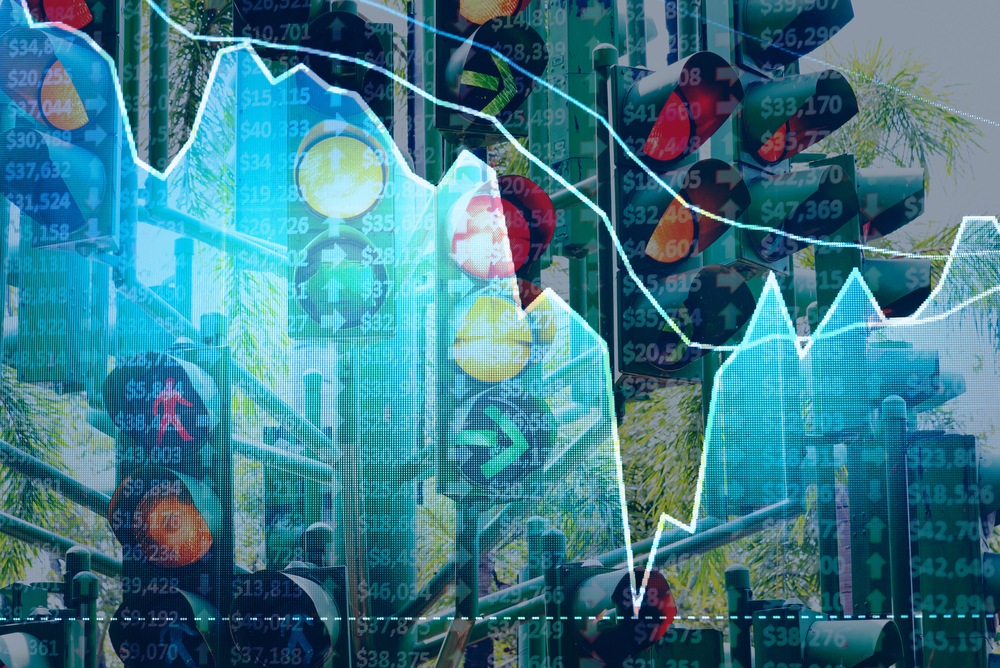Unemployment is surging at a record pace … but the stock market is outperforming.
Around 39 million Americans have filed for unemployment. But stimulus paychecks and jobless benefits have made up for some lost incomes. And more stimulus checks may land in mailboxes soon.
As a result, consumer sentiment is still better than the worst of the 2008 financial crisis.
The market is feeling the enthusiasm too. According to Yahoo Finance, earnings per share (a common metric to value stock prices) will only have fallen by around 14% in the first quarter.
The “only” does not mean 14% is a small drop. It is a big and sudden drop.
But it was expected to be bigger. Investors and analysts expected a bigger hit to stocks back in March. And they began pushing prices lower.
The good-ish news has made them more optimistic.
On a relative basis, consumers are breathing easy. But it will not last.
As of today, the Conference Board Consumer Confidence Index shows how consumers feel about current economic conditions, the outlook for the economy and their financial condition. It sits about 70% above the record low it established in 2008.
But the recession is still young. We still haven’t felt its toll. Sentiment will deteriorate. The optimism about reopening the economy will wear off. The reality of the economic slowdown will set in.
Confidence ebbs and flows, prices cycle up and down. Investors are looking too far ahead. The stocks that have rallied will fall again.
One particular sector has helped lead the way higher…
Don’t Believe “This Time Is Different”
Consumer discretionary stocks are up nearly 40% from their low — measured by the popular S&P Select Sector Consumer Discretionary SPDR Fund (NYSE: XLY).
These are supposed to be stocks of companies where consumers spend their discretionary income because they want to, not because they must.
Think cruise lines, hotels and new cars.
But that’s not all.
Discretionary stocks are supposed to show that consumers are getting back into the luxuries, and that they’re not just thinking about necessities. But looking at the holdings of XLY tells us what counts as “discretionary” is a little different than you might think.
XLY’s top holdings include Amazon.com Inc. (Nasdaq: AMZN), Home Depot Inc. (NYSE: HD), Lowe’s Cos. (NYSE: LOW) and McDonald’s Corp. (NYSE: MCD).
These three stocks make up about 40% of XLY. Amazon alone accounts for 25% of the fund. That’s because XLY is a market capitalization, which just means the bigger stocks take up a larger piece of the pie.
You might see how this could distort the full picture of this sector’s recent performance.
Amazon was nothing back in 2008. It was an e-commerce miracle, but Amazon Web Services, Prime and its own delivery trucks were not part of the conversation.
By market cap, at $34 billion, Amazon was only 2.8% the size of what it is today.
Today, in a nationwide lockdown, making purchases on Amazon is about as “discretionary” as using toilet paper.
To that point, consumers stuck at home are bored and they’re catching up on projects. Home Depot and Lowe’s were deemed essential businesses in most states. They remained open through lockdown.
And McDonald’s?
It might as well be a consumer staple — a business consumers can’t do without — during a recession. When people are pinching pennies, Mickey D’s offers big meals for a small price.
Investors have been looking to put money somewhere. They found a haven in these lockdown darlings. But these aren’t signs of a recovering market.
This recession is going to last longer. And reopening the economy is not the same as restoring the economy to a pre-pandemic state. Even these “darlings” won’t come out unscathed from this recession.
The worst part may be behind us. But the bad part is not. And the market has tried to move past the bad stuff too soon.
We’ll be wrestling with unemployment and its consequences for several quarters.
The shine will come off stocks such as Amazon, Home Depot and the rest that have benefited from other companies’ losses in lockdown. And we’ll be keeping you updated as that optimism turns.
Good investing,
Editor, Apex Profit Alert
P.S. When this rally does die down, if you want to know when it’s time to sell, my colleague Matt Badiali and I developed a system that tells us. We’re watching for a sell signal in consumer discretionary stocks. Then we’ll alert our subscribers to how they can trade the move for the chance at triple-digit gains. You can learn more about our system here.
